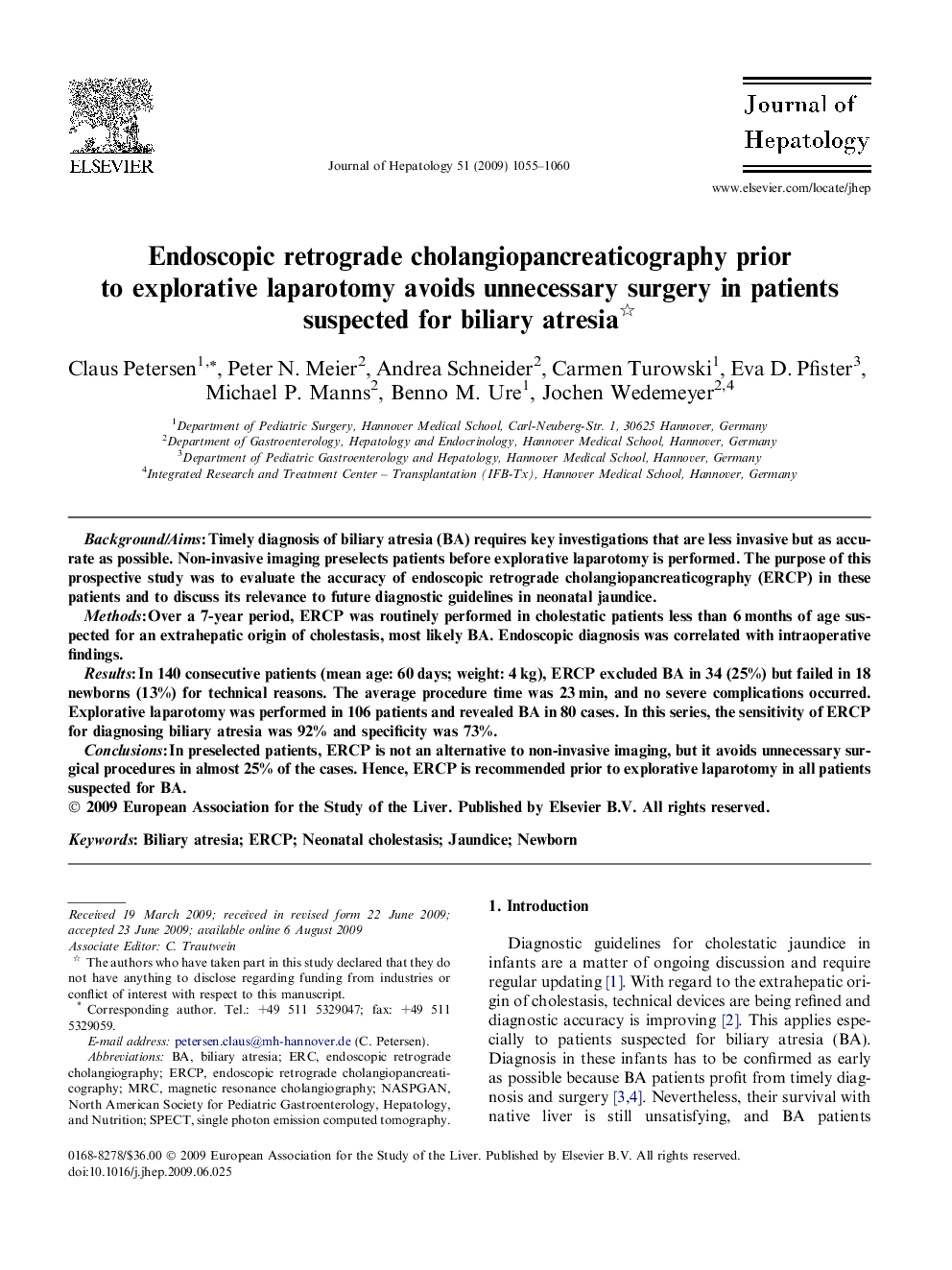| Article ID | Journal | Published Year | Pages | File Type |
|---|---|---|---|---|
| 6106955 | Journal of Hepatology | 2009 | 6 Pages |
Background/AimsTimely diagnosis of biliary atresia (BA) requires key investigations that are less invasive but as accurate as possible. Non-invasive imaging preselects patients before explorative laparotomy is performed. The purpose of this prospective study was to evaluate the accuracy of endoscopic retrograde cholangiopancreaticography (ERCP) in these patients and to discuss its relevance to future diagnostic guidelines in neonatal jaundice.MethodsOver a 7-year period, ERCP was routinely performed in cholestatic patients less than 6Â months of age suspected for an extrahepatic origin of cholestasis, most likely BA. Endoscopic diagnosis was correlated with intraoperative findings.ResultsIn 140 consecutive patients (mean age: 60Â days; weight: 4Â kg), ERCP excluded BA in 34 (25%) but failed in 18 newborns (13%) for technical reasons. The average procedure time was 23Â min, and no severe complications occurred. Explorative laparotomy was performed in 106 patients and revealed BA in 80 cases. In this series, the sensitivity of ERCP for diagnosing biliary atresia was 92% and specificity was 73%.ConclusionsIn preselected patients, ERCP is not an alternative to non-invasive imaging, but it avoids unnecessary surgical procedures in almost 25% of the cases. Hence, ERCP is recommended prior to explorative laparotomy in all patients suspected for BA.
